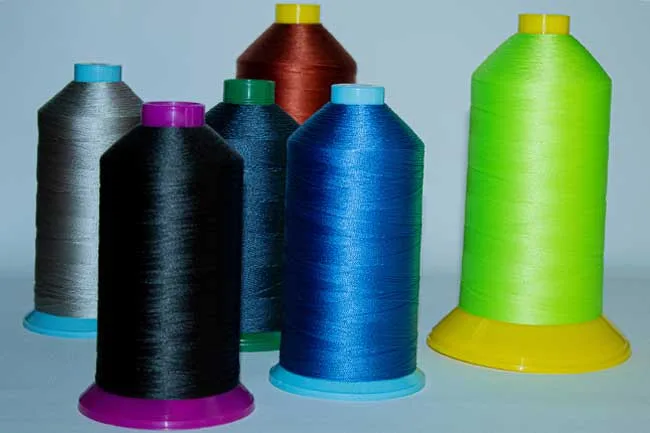Automotive interiors tell a lot about their owners! The choice of materials, decoration, and colors reflects their characters and personalities. As the interior becomes the vehicle’s focal point, automotive manufacturers are more and more focusing on personalization to enhance the mobility experience.
Colors play a crucial role in personalizing the vehicle’s living space, and as easy as it might seem, providing homogenous automotive interior components without color mismatches is a meticulous operation.
The color palettes for each automotive interior are decided in the design phase. Colorimetric measurements enable OEMs to define specific properties for each color and establish clear communications with their suppliers to avoid non-conformities or color mismatches in the final components. The colorimetric test compares different colors and quantifies materials’ properties using a spectrophotometer to measure brightness, saturation, and hue.
In this blog post, join Safae Benyaich, our Laboratory Responsible, on a journey through the world of RGB, where she presents Polydesign’s Colorimetric testing capabilities and explains how they enable us to set accurate color standards and guarantee uniformity across diverse automotive interiors and seating components.
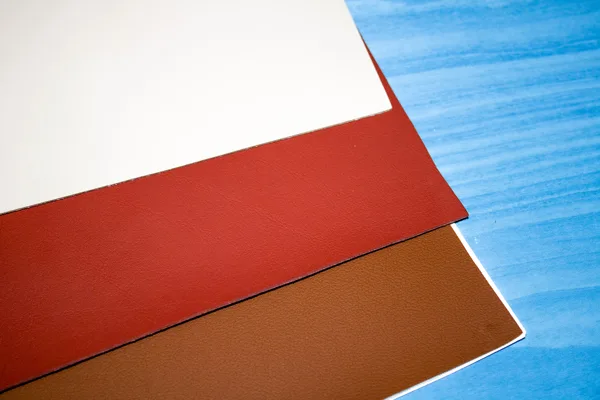
AUTOMOTIVE INTERIOR MANUFACTURING PROCESSES
The theory covered, let’s get to work and discover how the Colorimetric test is performed in automotive interiors industry:
- Equipment and preparation: We use The Spectrophotometer to project a beam of light onto the part or sample we are interested in. This light naturally bounces off the object and enters the spectrophotometer. This breaks down light into different colors, just like a prism splits light into a rainbow, and provides numerical values for each color. o Lighting: Create controlled lighting conditions to minimize external light sources’ influence. o Sample preparation: Ensure automotive interior samples are clean. Prepare standardized shapes or sizes for consistent testing.
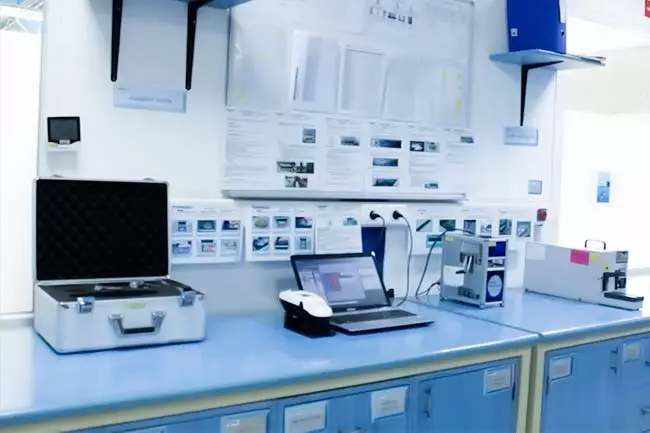
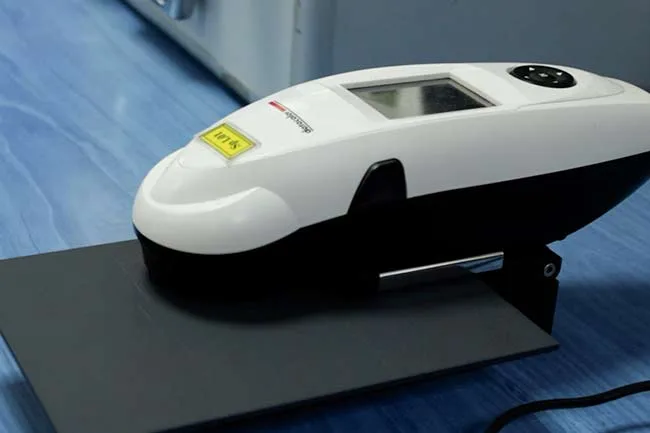
- Standardization: Calibrate the spectrophotometer according to the instructions. This process ensures accurate and consistent measurements. o Set up the instrument to measure color in the appropriate color space.
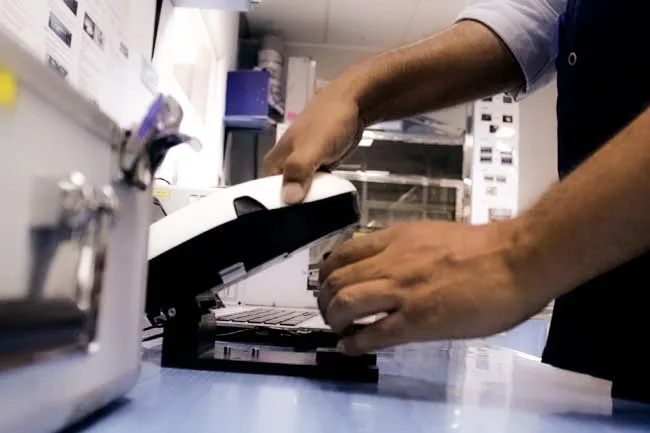
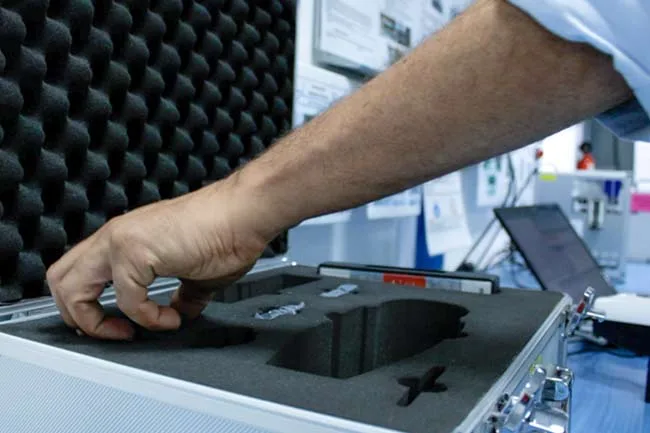
- Sample Measurements: Place the prepared sample in the instrument’s measurement area. Take multiple measurements per sample to account for variations and ensure reliable results. o Record the measurements, including color values.
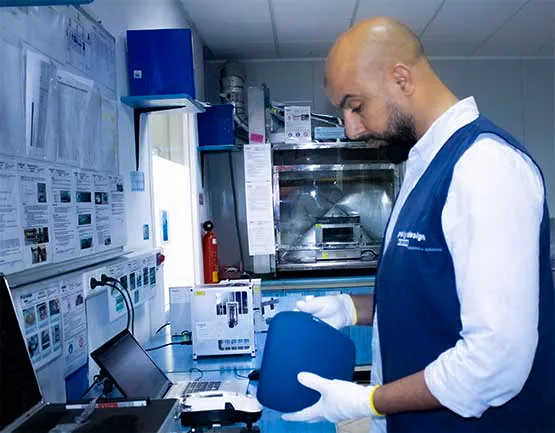
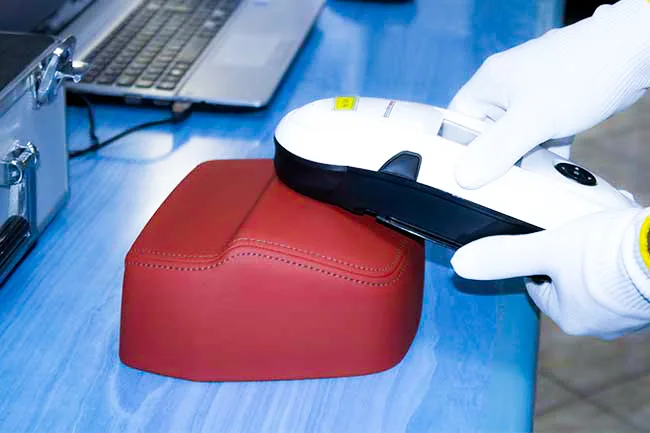
- Data analysis: Use color analysis software to interpret recorded color values. o Ensure the samples conform to the desired color requirements by comparing their measurements with established color standards or specifications. o Analyze the color differences (∆E) between samples to evaluate the variation between different parts.
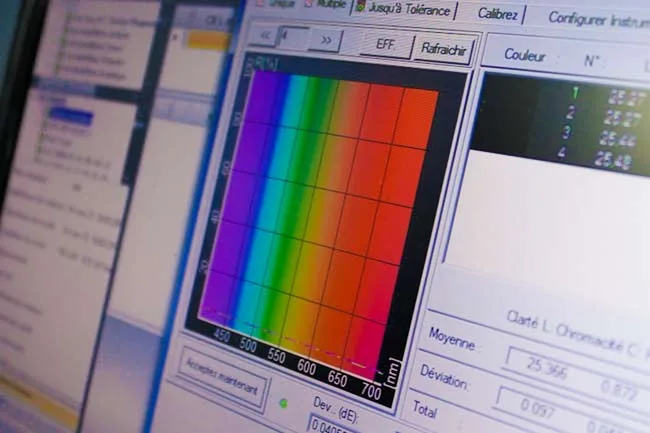
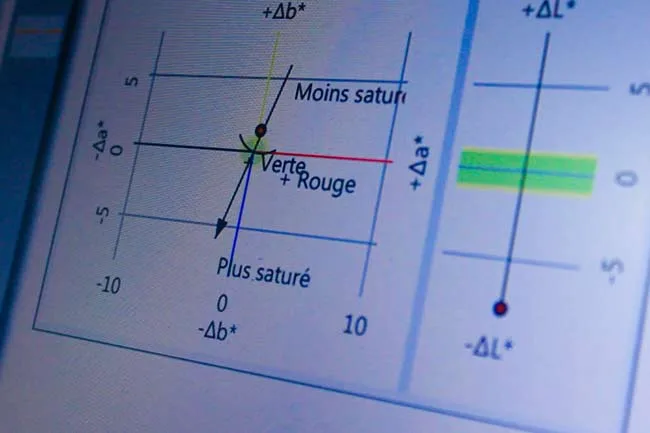
- Reporting: Compile the color measurement data into a report or database and include sample identification, measurement conditions, color values, and other relevant information. Use Charts or graphs to illustrate color differences and trends.
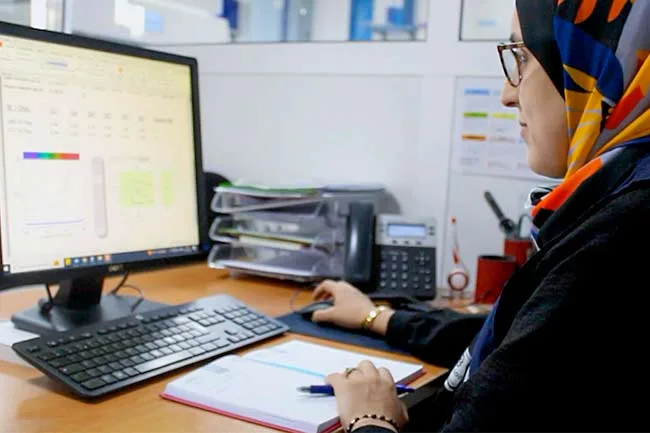
Colorimetric tests have paramount importance in automotive interior manufacturing. Though most colors and materials are selected and confirmed before development and manufacturing, our 20+ years of experience have taught us to be prepared to support our clients. We offer agile solutions through our in-house laboratory and enable our customers to fine-tune their initial selections, explore new solutions, and proceed with prototyping and manufacturing all-in-one place.
Want to learn more about automotive interior development and manufacturing?
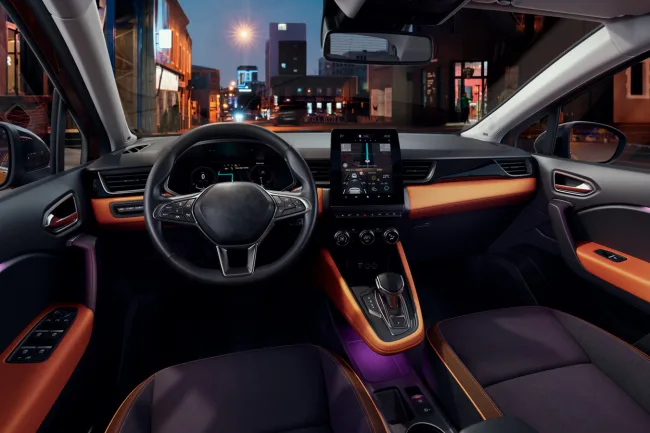
Article By:

Safae Benyaich Laboratory Responsible




